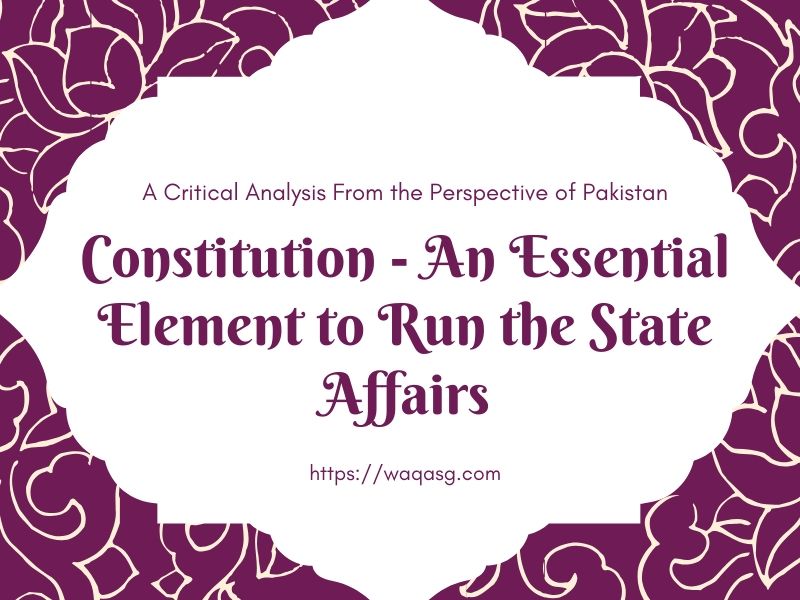
Rules are a crucial element to form a healthy community. Each of the states has its own rules for the country or region. These rules are often formed under the influence of religion some of them based on ancient principles that do not even address the issues of the contemporary world. Fortunately, it is not a case for all countries.
Islam originated in the 5th century with the arrival of Prophet Muhammad (PBUH) who come with a Holy book which is called Quran Majeed. The book provides rudimentary knowledge about everything but does not address each of the dimensions completely. Therefore, one needs a set of references to perform any task such as prayer. Here comes Hadith which tells method and rules to perform a prayer. Unfortunately, the whole of the ummah does not agree on the so-called rules. Sectarianism is the major issue Muslims are facing these days. Even nations are fighting others and killing hundreds of thousands, only because of religious supremacy.
The Islamic Republic of Pakistan, as the name speaks for itself. Pakistan is an Islamic country where most of the rules are made by Muslims. It doesn’t mean, Pakistan is not human-friendly for minorities. It is a secular state as the founder of Pakistan said, “so that the life, property and religious beliefs of its subjects are fully protected by the state”. The Prime Minister of Pakistan accomplished the vision of Quaid-e-Azam Muhammad Ali Jinnah by opening the Kartarpur Corridor on November 9, 2019.
Further, Jinnah spoke in his speech,
“In any case, Pakistan is not going to be a theocratic State — to be ruled by priests with a divine mission. We have many non-Muslims — Hindus, Christians, and Parsis — but they are all Pakistanis. They will enjoy the same rights and privileges as any other citizens and will play their rightful part in the affairs of Pakistan”
Page 125 Jinnah Speeches and Statements 1947-1948, Oxford 1997
Pakistan only Nuclear Power Islamic State that has much influence on Muslim Umma. Unfortunately, delay in the constitution-making lead to chaos. It is because, the lack of cooperation between the administrative personal, sectarian differences, and immediate death of the founder of the state.
Constitution of Pakistan
Roughly, there is two million pending case in Pakistan. There are thousands of people who are rotting the dark dungeons and torture cells waiting for a trial. One can say, in 1947 Great Britain left the Indian Subcontinent, but slavery didn’t abolish altogether. The elite takes that place. Bilal (Ph.D. Scholar) spoke in one conversation,
“during the formation of Constitution of 1973, the Ahmadis were declared non-Muslims. The Shia (Ahle Tashi) would follow the same fate if the Zulfikar Ali Bhutto was not himself Ahle Tashi.”
Justice is very expensive in Pakistan; it is out of the reach of common citizens. Here, Judges often fear to speak of religious matters. Most of the case is often infinitely delayed. There are thousands of people behind the bar for years waiting for their trial.
Leader of Muslim Ummah in the Middle East, Kingdoms Saudi Arabia also does not have a human-friendly constitution. KSA has one of the highest execution rates in the world. During 2018, Arabia executed a couple from Pakistan whose trial was not held in the international language. How one can prove the false allegation laid against him if one is not familiar with the language?
To encapsulate, the constitution is the most element to run state affairs. It is one of the core components to form a human-friendly community.





No comment yet, add your voice below!